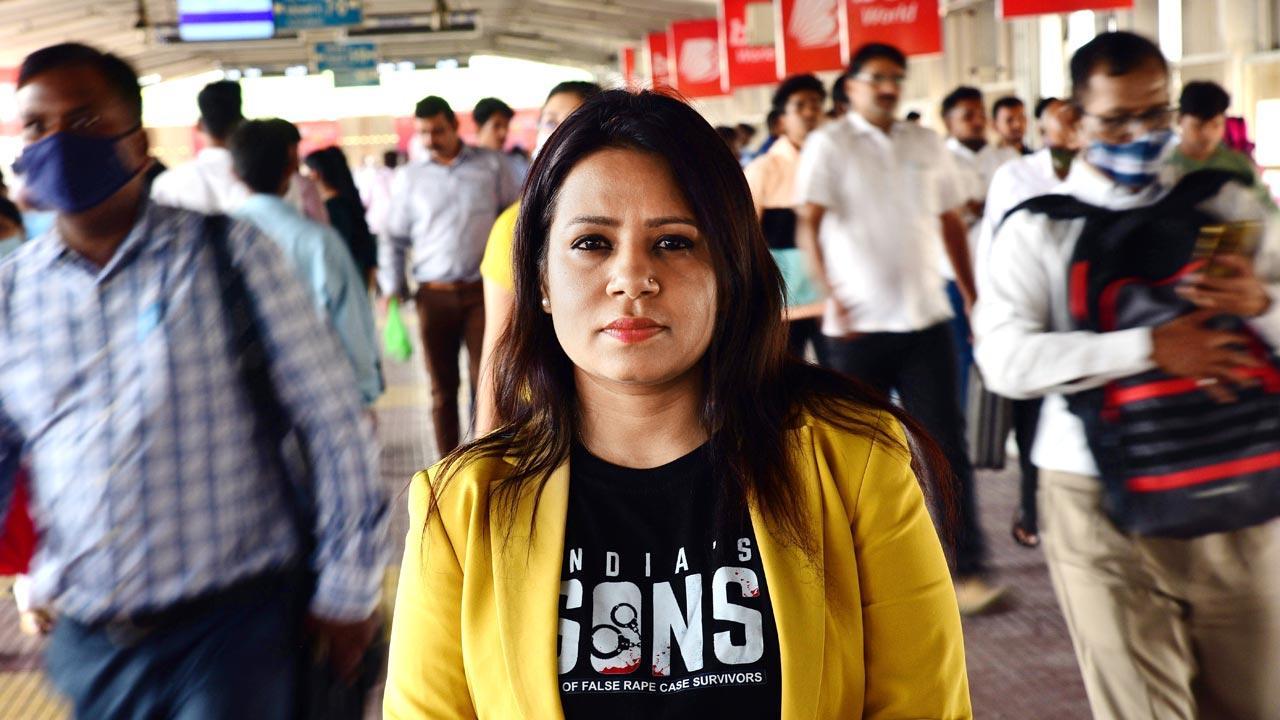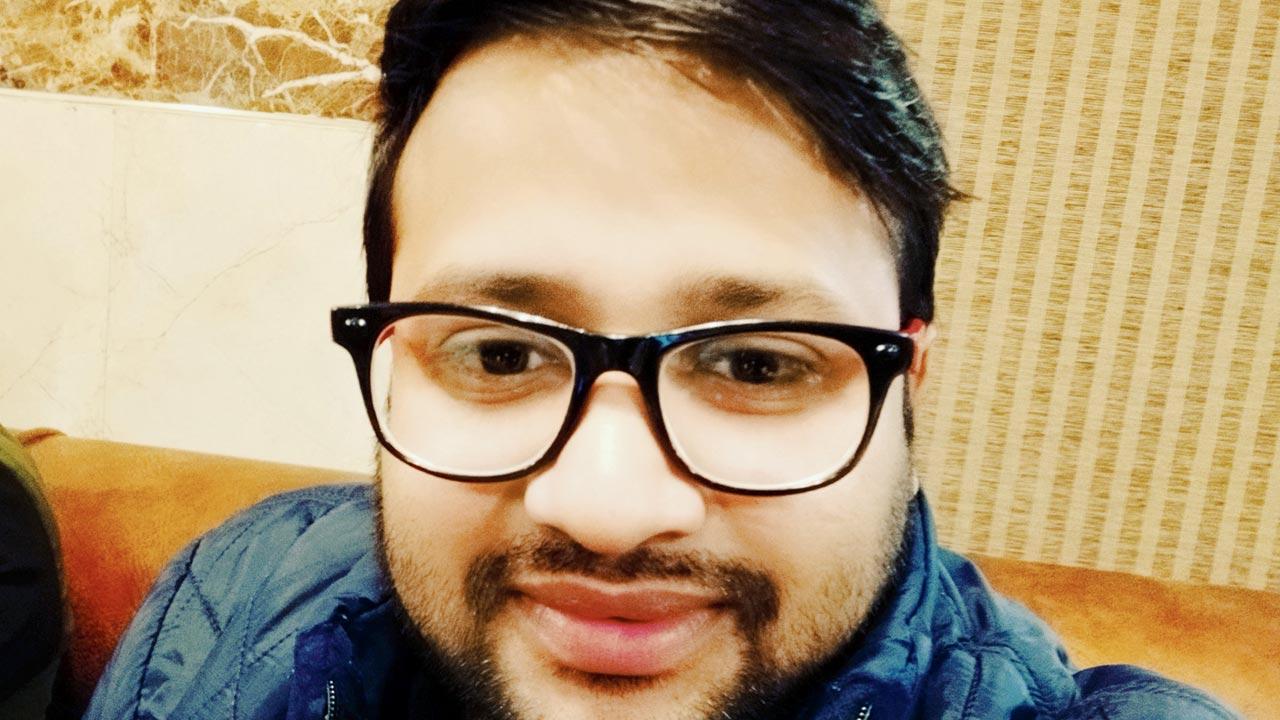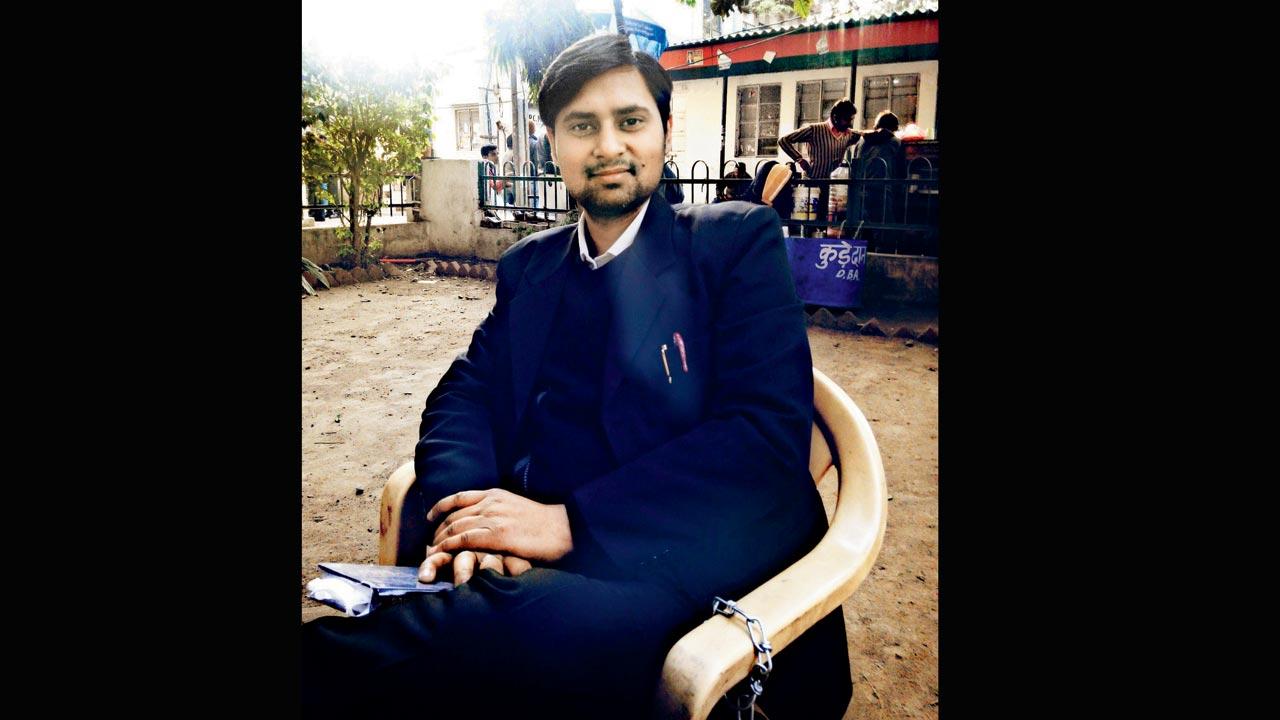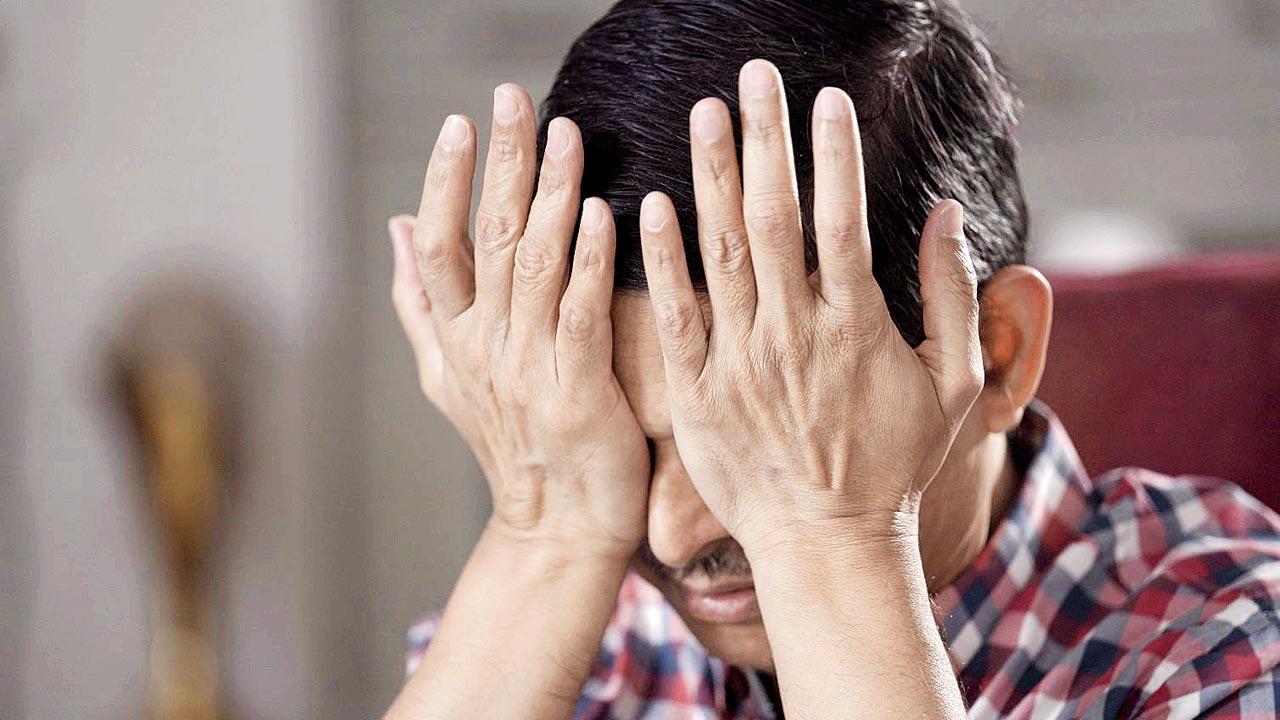A Delhi-based filmmaker arrives in the city to present a side to sexual violence no one wants to see. You must meet the men falsely accused of rape, says Deepika Narayan Bharadwaj, if you want to build a society that’s truly gender equal

Equal rights activist Deepika Narayan Bharadwaj’s documentary India’s Sons uses first person accounts to prove men can be victims of rape too when falsely implicated. Pic/Pradeep Dhivar
Deepika Narayan Bharadwaj is ready to premier a film that took three years to make about subjects who refused to be the focus of the story. How does one tell a tale when the protagonist refuses to be, well, the hero of the idea?
ADVERTISEMENT
Men falsely accused of rape have been a concern and interest for the Delhi-based activist-filmmaker for long. And in a country that seems to be grappling with the problem of fake rape cases, there would be thousands of subjects for Bharadwaj to pursue. Except, none were ready to speak. “Although the accusation was blatantly false, and the men had all the evidence along with a clean chit from the police and judiciary, they feared that the other party would go in appeal if they discussed the case,” she says on the eve of the premier of India’s Sons at Bandra’s St Andrew’s auditorium.
Arvind Kumar Bharti would’ve been one of them had Bharadwaj approached him.
 Prince Garg is currently looking for a job in Delhi. He has spent over five years in jail before he was acquitted in a case where he was accused of raping a 4.5-year-old girl at a construction site a stone’s throw from his home
Prince Garg is currently looking for a job in Delhi. He has spent over five years in jail before he was acquitted in a case where he was accused of raping a 4.5-year-old girl at a construction site a stone’s throw from his home
The Delhi-based lawyer and physiotherapist died by suicide in 2017 when he flung himself before a running train. In a letter he wrote to his family, says his brother Nitin Kumar Bharati, Arvind likened the train to the law crippled by the police, which was blind to his plight. The letter blamed India’s “biased rape laws and dowry laws which are only out to target men”, misused by his former wife and her family.
Arvind met Richa Thakur in 2008 at a friend’s home and the two grew close. On a trip to Haridwar, Nitin claims, she took photos of them at a puja and when back in Delhi, claimed it was a wedding ritual and insisted they live together. Police complaints at different police stations, a legal notice and veiled threats coerced him into marrying her, but the harassment didn’t stop, Nitin recalls. He lost his medical representative job after she’d land up at his workplace, making allegations. When their father Radheshyam Bharti feared he’d lose his government job following dowry harassment allegations by her, a lawyer in their family even suggested that they legally disown Arvind to shield themselves. The acrimony only grew when Richa became pregnant and filed a case under Sec 498A of the IPC (subjecting the woman to cruelty), leading to his arrest. “A fortnight in jail had broken him. The complaints with the Women’s Commission continued and all members of our family would be summoned now and then. After the birth of their daughter, although Arvind was jobless and legally disowned, the court asked him to pay a monthly maintenance of R3,000,” says Nitin. When in 2011, the parties agreed to a one-time settlement against R5 lakh, Richa did a U turn and demanded R25 lakh. A furious court scrapped her maintenance, claims Nitin. In 2017, she did the unthinkable. When she learnt that Arvind was in love with a lawyer, she accused him of raping her. “My parents spent the night in the station, and the next morning, the police informed the family that the couple had come to an agree- ment. But when Arvind didn’t return home for three days, they filed a missing person’s com- plaint. He was traced to Richa’s home, stripped and tied without water or food,” remembers their elder brother Vipin. Arvind’s suicide note recounted the details of this torture. Richa threatened to file another rape charge if they didn’t comply.
 Delhi-based lawyer Arvind Bharti died by suicide in 2017 and his suicide note blamed the rape laws which he said were inherently biased in favour of women
Delhi-based lawyer Arvind Bharti died by suicide in 2017 and his suicide note blamed the rape laws which he said were inherently biased in favour of women
The final blow came in December 2017. Arvind had found a job in Jasola on the outskirts of Delhi. On December 13, she accosted him while leaving home, hit him and snatched his laptop and a cheque of R32 lakh, which his boss had entrusted him with, and fled. Arvind slipped his jacket and a 12-page suicide note into his parent’s home and quietly made off. “When we took the letter to the cops the next morning, they did nothing. On December 15, we got a call about his body on the tracks,” says Nitin. On December 23, an FIR was registered, but it was only in May 2018 that Richa was arrested. Nitin says the high court granted her bail since she was mother to a young child.
While men’s rights activists like Bharadwaj, have been trying to draw attention to the misuse of the law, the judiciary too seems to be in admittance of a skewed bias. In August of last year, the Delhi High Court had expressed concern over the “alarming increase” in false cases of rape registered to “arm twist the accused”.
 Produced by Sahodar Trust, India’s Sons hopes to start a dialogue over the misuse of rape laws. It discusses the changes in laws post the 2012 Delhi bus gang rape and a system that’s exploiting stringent provisions meant to protect genuine victims
Produced by Sahodar Trust, India’s Sons hopes to start a dialogue over the misuse of rape laws. It discusses the changes in laws post the 2012 Delhi bus gang rape and a system that’s exploiting stringent provisions meant to protect genuine victims
Some critics say that ironically, an incident that spurred the country to accelerate all efforts to protect the rights of women and ensure their safety, has ended up being the driver of laws that are inherently biased against men. The 2012 Delhi bus gang rape led to the media reporting diligently on incidents of sexual assault, and women were emboldened to report abuse. Delhi alone saw a 100 per cent rise in cases registered. The law widened the definition of rape by instituting special fast-track courts and placing the onus on the police to register all sexual assault complaints.
The intention, says Bharadwaj, was noble, but this led to the sexual abuse allegations flying fast and thick. “It sickened me to see a mockery of a heinous crime like rape. How can the laws treat one gender as custodian of the truth and the other as liars and wrongdoers by default? The Constitution promises equality before law, then why does the system turn a blind eye to the truth when it is being told by a man?” she wonders, adding, “In a rape case, a woman’s words weigh above CCTV footage, chats, call records, witnesses and mountains of evidence. The onus is on the man to prove his innocence.”
Prince Garg, 28, says he was one of thousands of Delhi residents who had sat on a dharna demanding a safer space for women after the shocking 2012 bus gang rape case. He didn’t have the faintest idea then that he would be caught in the same system that he was petitioning to change.
When mid-day calls Garg for the interview, he is in Delhi looking for a job. He recounts the day from back in September of 2018 when he was readying to watch a film with his friends, when his mother called to say that a young boy who helped at their tea kiosk has been accused by a neighbour of molesting their four-and-a-half-year-old daughter. “My mother said the neighbour’s police complaint also named my father and me,” Garg remembers. Although the police discharged the 10-year-old for lack of a strong case, the girl’s mother filed a complaint of abuse against the Gargs, but they managed bail. Two weeks later, she claimed that the girl had been bleeding from her genitalia and I had picked her up on a scooter 100 m away from my home, taken her to a construction site five feet away and raped her on a stack of bricks.” His friends were willing to testify that he had been at a movie with them and CCTV footage from the theatre confirmed this. But, on his lawyer’s advice, Garg surrendered and was immediately arrested. After spending 2.5 years in Rohtak jail as undertrial, when his case finally came up for hearing in 2016, he was sentenced to life. Two subsequent appeals in the HC were rejected. An additional evidence application was raised by the Gargs in January 2018. The matter came up for hearing in December 2018. “The HC not only gave me bail, but also transferred my case to the lower court asking for a re-trial with orders for a fresh judgment within three months.” Finally on February 4, 2019—after five years and three months locked up—Garg was acquitted. “I felt no sense of victory. My graduation plans and dreams for a future had been ruined,” he says. His family is yet to repay the R20 lakh loan they raised for his legal case. “My father suffered a heart attack and we struggled to get my sisters married because of the case.” Garg claims that the girl’s family received a R3 lakh compensation from the government and left Delhi for their village.
In 2019, Justice Sadhna Jadhav of the Bombay High Court, while granting bail to a man, had remarked: “of late several cases were coming before the HC in which victims have filed complaints alleging rape and contending that they had entered into relationships after being promised marriage. In a relationship between consenting adults, sometimes such complaints are filed in the heat of the moment and withdrawn later. This has become a trend and sends the wrong signal to society.”
According to the Indian National Crime Records Bureau (NCB), India saw a 35 per cent increase in registered rape cases from 2012 to 2013, and a 30 per cent increase in false rape cases filed in 2013 over 2012. As per data available from the trial courts in Delhi, between January to August of 2013, acquittal rates rose from 46 per cent to 75 per cent.
While the number of people arrested versus persons convicted was 20 per cent between 2007 and 2012, it dwindled to 15 per cent between 2013 and 2018, according to NCRB data.
Delhi centric data shows that close to a quarter of registered rape cases involve consensual sex between adults and a breach of promise to marry. Unlike the popular perception, stranger rape was attributed to a minuscule percentage. According to the NCB, false cases have risen from 22.1 per cent of the total reported rape cases in 2015 to 51 per cent in 2019. In some states, these cases amount to 55-85 per cent of the total rape cases registered. “How can non-adherence of the promise to marry be termed rape? This is not included in the definition of rape anywhere else in the world,” argues Bharadwaj. “There have been cases of women in affairs outside marriage filing rape charges because the man didn’t marry them. So many of them are aged 30 to 50, some have children too. A majority of such cases result in the acquittal of the man, but there is no compensation for the months and years he may have spent in jail.”
Women’s rights groups are quick to argue that the false rape case data doesn’t differentiate between those that saw a full trial and those where a case never went to trial because the survivor was intimidated or discouraged by delay and challenges.
Flavia Agnes, co-founder of Majlis, a Mumbai-based legal and cultural resource centre for women, says that stigma around sexual violence continues to hold a grip and the survivor continues to find it difficult to approach the police, burdened by guilt and shame. She tells mid-day, “Lethargic investigations mean that the percentage of accused who are arrested is abysmal. Of these, only a miniscule number make it through the legal process and get convicted. When an accused is not convicted, it doesn’t mean it translates to a ‘false’ rape case. Changing the laws would in one swoop reverse all the gains made for women’s rights over decades.”
 Subscribe today by clicking the link and stay updated with the latest news!" Click here!
Subscribe today by clicking the link and stay updated with the latest news!" Click here!







